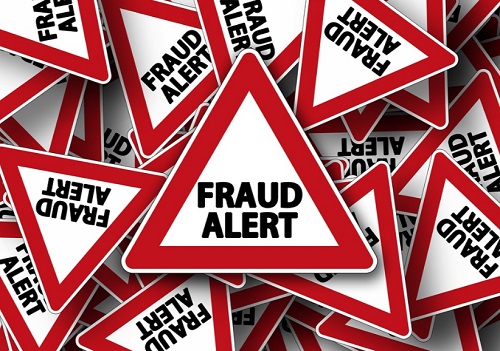Protecting Yourself From Email Scams During The Holidays

During the holidays, it’s extra important to be aware of email scams as you’re sending and receiving your holiday gifts and packages. One of the more common scams during this season are the fake delivery notices that you have a package waiting. Consumers are once again reporting this scam at an alarming rate so we wanted to help you be aware of what it is and what it looks like
What Does This Email Scam Look Like?
The scam works like this: An email is sent by the scammers with the subject line reading something like “Delivery Failure From USPS.” There will be a link to click on to find out why your package wasn’t able to be delivered. As soon as you click on that link, you’ve opened up your computer for the virus. Some of the lingo used might look something like this:
USPS.com
You have a package that your postman was unable to deliver.
Please print the label provided to you through this link and take it to your nearest post office to retrieve your package.
NEVER CLICK ON THE LINK!
Clicking on links associated with these email scams can open up a host of issues. The biggest risk is downloading a virus to your hard drive. This allows your sensitive information to become exposed and easily stolen. Scammers would have access to your passwords, credit card info and other financial data.
Often, malicious ransomware and malware infect your computer without you ever even knowing it. Once you attempt to sign into various accounts online, the email scammers will use a mirroring program to record your actions and they will use that to steal every bit of personal information they can get their hands on.
It isn’t just the post office dealing with these scams—UPS and FedEx also have fallen prey to hackers and scammers. The scary part is the scammers will use official looking logos and websites to make themselves look legit. You will receive notices that look completely official from the shipping companies, making it hard to know when you are dealing with an email scam.
Protecting Yourself
Stay aware! If you get emails that you don’t think you should be getting from either the post office or a major shipping company, do not click links within that email! Even though you may be waiting on a package, it’s better to deal with the company directly, rather than risking a virus by clicking on a link.
Be on the lookout for any phone calls claiming to be employees of any of these agencies. If you are called and asked for sensitive information, never provide that info until you know for sure who you are dealing with!
Look for obvious errors in grammar and spelling on any emails or other communication. It’s usually a dead give-away that you’re dealing with an email scammer.
Never answer texts you aren’t sure about. This, too, can open you up for email scams.
You can never be too careful when it comes to your personal information this holiday season! It’s ok to be suspicious of any text, email or phone call that you aren’t sure about. If you are expecting a package, always deal directly with the shipping company!
For more information on how to protect yourself from email scammers during the holidays, call us today at Tech Sentries! Our number is 843-282-2222.
Remember “Think Before You Click!”



